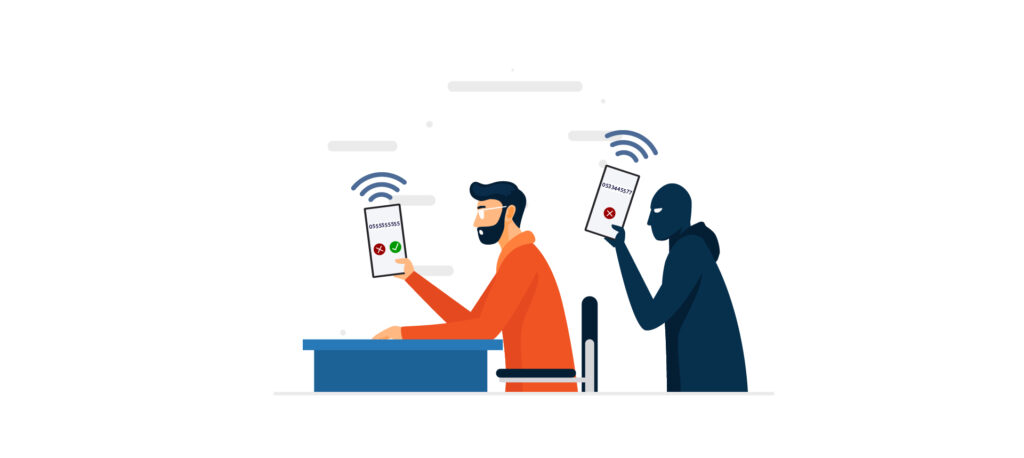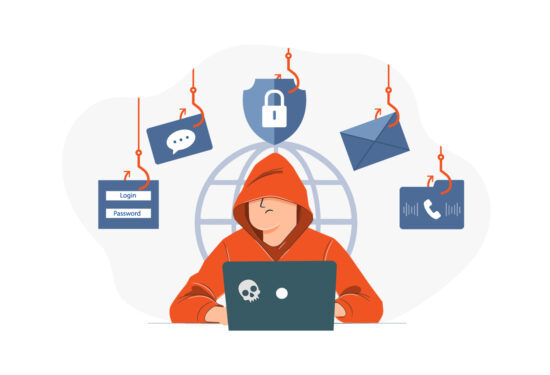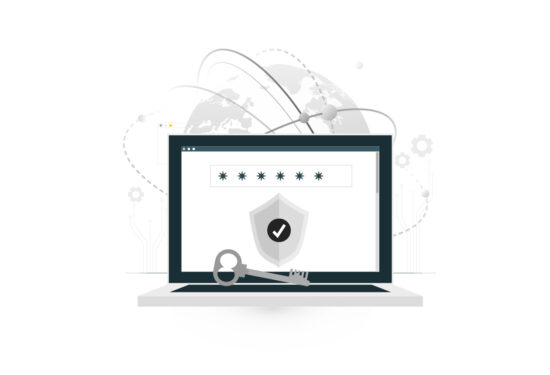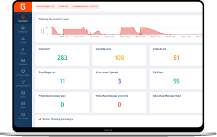Understanding of the Vishing Meaning
Vishing, a combination of “voice” and “phishing,” is a sophisticated form of cybercrime that exploits voice communication to trick individuals and extract sensitive information.
In this comprehensive guide, we will explore the meaning of it, the dangers associated with it, and effective methods to protect yourself against these malicious attacks.
What is Vishing meaning?
Vishing refers to the fraudulent practice of using telephone services to trick individuals into revealing personal and financial information.
Scammers often pose as trusted organizations or individuals to gain their victims’ trust.
By using social engineering tactics and manipulating human psychology, vishing attackers create a false sense of urgency or fear to deceive their targets.
Techniques Used in Vishing Attacks
Vishing attackers use a range of techniques to carry out their fraudulent activities.
These may include impersonating banks, government organizations, or one of the service providers.
By leveraging social engineering tactics, scammers manipulate their victims into revealing sensitive information or performing actions that benefit the attackers.
Understanding its meaning can help individuals recognize and avoid being a victim of voice phishing scams.
The Dangers of Vishing
Vishing poses significant risks to individuals and organizations alike.
Victims may suffer financial loss, identity theft and damage to their reputation.
Moreover, the psychological impact of falling victim to a vishing attack can be severe, leading to feelings of violation, betrayal, and vulnerability.
It is crucial to understand these dangers and take proactive measures to protect oneself.

Protecting Yourself Against Vishing Attacks
These attacks can be sophisticated and convincing, there are several measures individuals can take to protect themselves:
- Be Skeptical and Verify:
Maintain a healthy level of skepticism when receiving unsolicited calls, especially those requesting personal information or financial details.
Remember, legitimate organizations will never ask for sensitive information over the phone.
Take the time to verify the caller’s identity independently using official contact information before sharing any confidential data.
- Guard Personal Information:
Be cautious about sharing personal information on public platforms or social media.
Vishing attackers often gather data from these sources to personalize their scams.
Minimize the amount of personal information available online and adjust privacy settings on social media platforms to restrict access to your data.
- Be Aware of Caller ID Spoofing:
Caller ID spoofing is a common technique used by voice phishing scammers.
They fake the displayed phone number to appear as a trusted entity.
However, it’s important to remember that caller ID information can be easily faked.
Therefore, never just rely on caller ID as an indicator of legitimacy.
- Educate Yourself and Spread Awareness about Vishing:
Stay informed about the latest vishing techniques and share this knowledge with friends, family members and colleagues.
By spreading awareness, you can help others recognize and avoid falling victim to voice phishing attacks.
Encourage them to be cautious, question suspicious calls, and follow best practices for safeguarding personal information.
In Conclusion
By understanding the Vishing meaning, recognizing the dangers it poses, and implementing effective protection measures, you can safeguard yourself against voice phishing attacks.
Stay aware, educate yourself about voice Phishing techniques, and spread awareness to create a safer digital environment for everyone.
You can also use Infoshield the comprehensive cybersecurity awareness platform to educate your employees about the fundamental concepts of cybersecurity this is what Cerbera, the leading company in cybersecurity products, offers you.
Share this article:
Popular

Keeping Our Kids Safe Online
A Guide For Keeping Your Kids Safe Online Parents and all who are concerned about the well-being of our young kids in this digital world. Today we will discuss a topic of utmost importance: digital safety for kids. Yes, the Internet can be a very dangerous place for our young kids , especially with the spread of phishing scams. So, let us dive deeper and present to you, in this comprehensive article, a comprehensive guide on digital safety for kids. What every parent needs to pay attention to. Internet risks for kids: The internet has become a big part of ...
17th Jul 2024
Could you be hacked through Slack?
Could you be hacked through Slack? The usage of collaboration platforms such as Microsoft Teams and Slack has significantly increased, with nearly 80% of employees utilizing them. These platforms are designed to be convenient and easily manageable for daily conversations within organizations. However, what makes them easy and convenient also renders them vulnerable to cyber threats and attacks. In 2021, for instance, 780 gigabytes of data from the gaming giant Electronic Arts (EA) were breached through Slack! During the same year, a security vulnerability in Microsoft Teams was exploited to launch a widespread cyber attack on ...
12th Jun 2024
Tips To Be Cyber Protected While Traveling
Goodbye worry! A safe journey in the digital world With all the modern wonders of the digital world, we trust communication technologies on our journeys. There is no doubt that the travel experience is always more beautiful and enjoyable, but it can also pose a range of risks, especially when it comes to cybersecurity. Travelers may fall victim to phishing, Wi-Fi network spying, and theft of their personal data, which can make their journey filled with worries and tension. With the increasing prevalence of cyber threats, it is essential for travelers to follow some guidelines to protect their devices and ...
1st Apr 2024
Push Authentication: A New Era in Multi-Factor Authentication
Want To Say Goodbye To Passwords and OTP Codes? Discover Push Authentication! It is easy for your password to be compromised through phishing attacks, even if it meets the cybersecurity strong password standards and is difficult to predict So we must get to know the technique of Push based Authentication. Some may recommend that you use Multi-Factor Authentication (MFA) to increase your security. Multi-Factor Authentication (MFA): MFA is the process of logging into your account through multiple steps. It requires you to enter more information, not just your password. But there is another obstacle that arises when using such ...
14th Feb 2024
The Difference Between Phishing Attacks
The Difference Between Phishing Attacks Phishing attacks are harmful attacks used by criminals to steal personal and financial information from individuals and businesses. Attacks on individuals and businesses are becoming more common as we use the internet and technology more often in our daily lives. Phishing attacks involve the use of dishonesty and fraudulent methods to fool consumers into believing they are interacting with the trustworthiness of an unsuspecting destination, such as banks, email companies, or social media platforms. But what is the difference between phishing attacks? How can individuals and organizations protect themselves from such attacks? That is what ...
17th Jul 2023
How could Artificial Intelligence tools threaten cybersecurity
How could Artificial Intelligence tools threaten cybersecurity? As Artificial Intelligence Tools become more sophisticated, they can be used to launch cyber attacks that are more complex and difficult to detect. In this article, we will explore how AI tools could threaten cybersecurity and what measures can be taken to mitigate these threats. Artificial Intelligence (AI) became popular today, and it is one of the most important terminologies in our current era, though it has been around since the 1950s. AI relies on the development of systems and technologies that help to do tasks by the simulation of human intelligence ...
11th May 2023
Cerebra is participating at GISEC 2023
We are thrilled to announce that we are going to GISEC 2023 and would like you to join us! Visit Cerebra at GISEC 2023 Hall #4 stand SP62 in Dubai World Trade Center from 14-16 March. GISEC Global is the leading gathering ground for the cybersecurity community worldwide. Top cybersecurity enterprises from 40 countries, CISOs from major corporations across the Middle East, Africa & Asia, government dignitaries and cyber leaders, regional and international innovators, and global experts collaborated to lead cybersecurity transformations across sectors and nations decisively. Get a chance to preview our latest Cybersecurity products: PhishGuard is the Phishing stimulations solution that raises the employees cybersecurity awareness ...
13th Mar 2023
6 Tips to create a strong password easily!
Create a strong password easily! Today it’s very important to everyone who have an account either on social media or any other websites or services to Create a strong password, because you have to treat your password as your best stuff’s and protect it from others. Learn now the easiest and best tips you have to follow to make a strong password.. What is Password? A password is a string of characters that provides access to a digital system or service. It is a crucial security measure that helps to protect sensitive information from unauthorized access. Passwords can be as simple as a word ...
1st Feb 2023
Employees and cyber security: dangerous statistics about Phishing
Employees and cyber security The relationship between employees and cyber security this days must be tight and your company have to give it the right care if you want to keep your data and your business secure.. According to insights from our leading Phishing simulation tool PhishGuard, 58% of users in Saudi Arabia have opened at least one phishing email. These insights reveal that at least one out of four employees have interacted with a phishing email, either by clicking on a link or downloading a malicious attachment. In some cases, employees have gone further and submitted their personal information ...
26th Oct 2022







